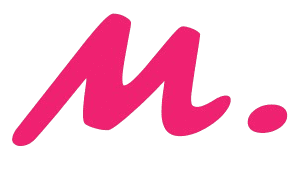Best CRM Tools for 2025 — Top CRM Software

Best CRM Tools: How to Pick the Right CRM for Your Team
Choosing the best CRM tools can feel overwhelming — there are so many options and every vendor promises “the best.” I wrote this guide like I was explaining choices to a friend: honest, practical, and focused on what really matters for sales, marketing, and customer success.
Why a CRM matters (and what it actually does)
A CRM (customer relationship management) system centralizes contacts, tracks sales activity, automates follow-ups, and helps you deliver better customer experiences. For small businesses it can mean fewer dropped leads. For larger teams, it’s the difference between predictable growth and chaos. The best CRM tools streamline communication and give you visibility into your pipeline — without turning into a time sink.
How I evaluate CRM software
When I compare CRM software I look for a few key things:
- Ease of use — will my team actually adopt it?
- Customization — can it match our sales process?
- Integrations — does it play nice with email, marketing, and support tools?
- Reporting — can I get actionable insights quickly?
- Price vs. value — does the feature set justify the cost?
Pro tip: try the free tier or a short pilot with your real data. There’s no substitute for seeing how a CRM handles your specific workflows.
Top CRM tools (shortlist and who they’re best for)
Below are some of the best CRM tools I recommend, with short notes so you can match one to your needs.
1. HubSpot CRM — Best for inbound and small teams
HubSpot CRM is incredibly user-friendly and has a generous free tier. It’s built with marketing and sales alignment in mind, so if you’re focused on inbound leads and want easy marketing automation, it’s a strong pick. I used HubSpot in an early-stage startup and loved how fast the team adopted it.
Visit HubSpot to explore plans and features.
2. Salesforce — Best for enterprise flexibility
Salesforce is the heavyweight: massively customizable, deep reporting, and huge ecosystem. It’s ideal for larger organizations that need complex sales processes and integrations. That said, setup and maintenance can be pricey — plan for implementation resources.
Explore Salesforce for enterprise-grade options.
3. Zoho CRM — Best value and small business features
Zoho CRM gives a good balance of features at a lower price point. It includes sales automation, analytics, and decent integrations. If budget matters and you need solid functionality without the enterprise price tag, Zoho is worth trying.
Check out Zoho CRM for pricing and demos.
4. Pipedrive — Best for straightforward sales pipelines
Pipedrive is built around an easy visual sales pipeline. It’s ideal for small to mid-size sales teams that want focused CRM features without too much complexity. If you live and die by pipeline stages, Pipedrive helps keep things moving.
Learn more at Pipedrive.
5. Freshsales (Freshworks CRM) — Best for integrated support and sales
Freshsales (now part of Freshworks) combines sales CRM with built-in chat and support capabilities. It’s a great pick for teams that want tighter alignment between sales and customer support, especially if you’re already using Freshdesk or other Freshworks tools.
See details at Freshsales.
6. Microsoft Dynamics 365 — Best for Microsoft-centric organizations
If your company relies on Microsoft 365 and Azure, Microsoft Dynamics 365 can be a seamless fit. It offers deep integration with Outlook, Teams, and the Microsoft stack, and it’s robust enough for complex enterprise needs.
More at Microsoft Dynamics 365.
Choosing the right CRM: quick decision checklist
- How big is your team and how fast do you need to scale?
- Do you prioritize ease of use or customization?
- Which tools must the CRM integrate with (email, helpdesk, marketing)?
- What’s the total cost of ownership, including setup and training?
- Can you run a trial with real users and data?
Common mistakes to avoid
I’ve seen teams pick expensive, feature-rich CRMs that nobody uses. Adoption is the silent killer of CRM ROI. Don’t over-automate too early — start with the core workflows and build from there.
Final thoughts
There isn’t a single “best CRM” for everyone. The best CRM tools are the ones your team will use consistently and that map cleanly to your sales and customer workflows. If you’re starting out, try HubSpot or Pipedrive. If you’re scaling fast and need deep customization, consider Salesforce or Microsoft Dynamics 365. And if budget is a top constraint, Zoho gives great value.
If you want more SaaS-focused guides like this, check our SaaS category for deeper reviews and comparisons.









